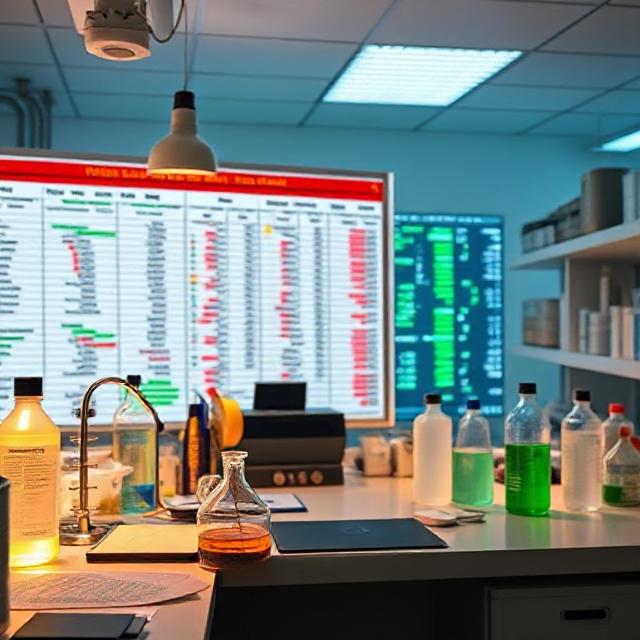In the pharmaceutical industry, the term “CSV” refers to Computer System Validation. This process is crucial for ensuring that computer systems used in drug manufacturing, testing, and distribution meet regulatory requirements, thereby maintaining data integrity and accuracy. Such validation is essential for patient safety and compliance with regulations set by bodies like the EMA, FDA, etc…
What is Computer System Validation (CSV)?
In modern pharmaceutical settings, most laboratory equipment and manufacturing processes are computerized, CSV is essential to ensure these systems function as intended and consistently produce accurate and reliable results. This involves validating software, hardware, and peripheral devices used across various stages of drug production and testing.
Key components of CSV include:
- Validation Protocols : These are detailed plans outlining the steps to be taken during validation. They ensure that all aspects of the system are tested and verified.
- Documentation: Comprehensive documentation is maintained throughout the validation process, including test scripts, results, and any deviations/incident from expected outcomes.
- Testing Phases:
- Installation Qualification (IQ): Verifies that the system is installed correctly and meets manufacturer specifications.
- Operational Qualification (OQ): Ensures that the system operates as intended under specified conditions.
- Performance Qualification (PQ): Demonstrates that the system consistently produces accurate results over time.
These phases align with the principles of the V Cycle/Model, ensuring each stage of development and validation meets predefined requirements and standards. This structured approach guides CSV practices, from initial setup through ongoing compliance, to uphold reliability in pharmaceutical operations.
Importance of CSV :
Validating computer systems is vital for preventing errors, ensuring data accuracy, and maintaining regulatory compliance. In the pharmaceutical sector, where every detail must be precise to ensure drug efficacy and patient safety, Computer System Validation (CSV) plays a pivotal role. The validation process is not merely a regulatory formality but a critical safeguard against potential errors that could arise from inadequate system testing or improper implementation. A lack of CSV can lead to manufacturing or QC inconsistencies, data inaccuracies, and even non-compliance with stringent regulatory requirements such as those enforced by the FDA and EMA.
For example, consider a scenario where a batch of medication is contaminated due to a malfunctioning automated filling machine that was not properly validated. This could result in a product recall, financial losses, reputational damage, and most critically, harm to patients who consume the defective product. Such incidents underscore the importance of CSV in ensuring that all systems involved in drug production are reliable and function as intended.
Moreover, CSV is integral to maintaining data integrity, which is crucial for regulatory submissions and audits. Inadequate validation can lead to discrepancies in data records, undermining trust in the manufacturing process and potentially jeopardizing market approval for new drugs. Therefore, robust CSV practices are essential not only for meeting regulatory expectations but also for upholding the highest standards of quality and patient safety in pharmaceutical operations.
The lifecycle approach to system validation further emphasizes the ongoing nature of CSV. This approach involves validating systems at every stage, from design and installation through ongoing use (periodical review) and decommissioning. By adopting this proactive stance, pharmaceutical companies can identify and rectify potential issues early, minimizing risks and ensuring uninterrupted compliance with regulatory standards to ensure patient safety.
Challenges in CSV
The pharmaceutical industry faces several challenges in implementing CSV:
- Rapid Technological Advancements: Keeping up with evolving technologies (as basic as an OS update; (e.g. windows 10→ windows 11) requires continuous updates to validation protocols and methodologies.
- Efficiency vs. Thoroughness: Ensuring comprehensive validation without compromising operational efficiency can be challenging, especially in large-scale manufacturing environments.
- Training and Expertise: Adequately training personnel on CSV practices is crucial to ensure that validation processes are executed correctly and consistently.
CSV’s Impact Beyond System Validation
While ensuring system reliability is a fundamental aspect, Computer System Validation (CSV) extends its influence into various critical areas within the pharmaceutical industry. One such area is data management, where CSV ensures that systems used for data capture, storage, and analysis are validated to maintain data integrity throughout the drug lifecycle. This is crucial as accurate data underpins decision-making at every stage, from research and development to production and post-marketing surveillance.
Quality control processes are significantly influenced by CSV as well. By validating automated testing equipment and laboratory software, CSV ensures that the results obtained are reliable and consistent. This reliability is vital for maintaining the quality of pharmaceutical products and adhering to regulatory standards, which in turn safeguards patient safety and product efficacy.
Furthermore, CSV plays a pivotal role in risk assessment. Through systematic evaluation, CSV identifies
potential risks associated with computer system use and implements measures to mitigate them. For instance, if a software glitch could lead to incorrect dosage calculations, CSV would identify this risk and ensure that fail-safes are in place to prevent such errors.
In addition to these areas, CSV also supports compliance with regulatory requirements by ensuring that systems meet the standards set forth by bodies like the FDA and EMA. This compliance is not just about avoiding legal repercussions but also about maintaining trust and credibility within the industry and among consumers.
Moreover, CSV contributes to continuous improvement processes by fostering a culture of ongoing evaluation and enhancement of computer systems. By regularly assessing and updating systems, pharmaceutical companies can stay ahead of potential issues and optimize their operations for efficiency and effectiveness.
In summary, CSV’s impact extends beyond mere system validation into data management, quality control, risk assessment, regulatory compliance, and continuous improvement. Its role is integral to ensuring that
pharmaceutical products meet the highest standards of quality, safety, and efficacy, thereby protecting
patients and upholding industry integrity.
Conclusion
Computer System Validation is a cornerstone of modern pharmaceutical operations, ensuring that computer systems function reliably and comply with regulatory standards. By addressing challenges and adapting to technological advancements, the industry can continue to enhance CSV practices, ultimately contributing to improved patient safety and operational efficiency. As the field evolves, staying informed about emerging trends and best practices will be essential for maintaining high standards in the pharmaceutical sector.
And finally we have somewhere to point to when we need to explain what we do 🙂




